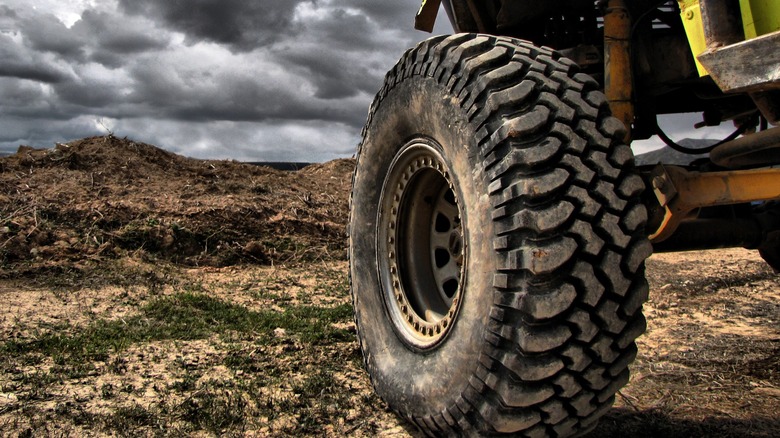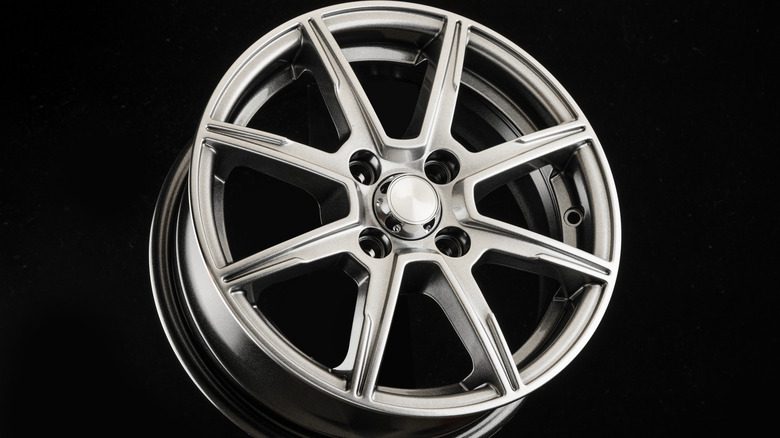What Type Of Rims Are Best For Off-Roading (And Which Are The Worst?)
The term "rims" is often misunderstood and sometimes used interchangeably with the word, "wheels." In truth, rims are the outer portion of the wheel that pushes up against the tire. Rims serve an important function to provide support to the wheel and ensure the tires remain full of air by maintaining a good seal.
The rim is also the area of the wheel that endures the most impact force from backcountry hazards like loose rocks and sharp berms. When off-roading, tire pressure is often reduced, putting the rims at even greater risk from impact. So, when choosing between major car wheel brands, you'll also want to consider the type of material used, and steel is the superior choice for off-roading.
Steel rims can withstand an impact of greater force by bending under pressure, but remaining solid. A bend in your steel rim can actually be hammered out right on the trail, allowing you to continue driving. One off-road enthusiast explained, "I zigged when I should [have] zagged and bent a steel wheel ... I brought out my hand sledge and beat the bead lip back to stop the leak. Refilled the tire and I was on my way." In addition to the right rims, you'll also need quality rubber treads like these great all-terrain tires that'll get you off-roading in no time.
Cast aluminum alloy is the worst option for rugged terrain
Rims made from cast aluminum alloy offer benefits such as being resistant against low to medium strikes — they are also less likely to develop rust when scratched, and there are more unique spoke designs that offer eye-catching looks. Cast aluminum alloy won't bend out of shape like steel does, and therefore, it's also easier to balance. All of these qualities make this type of rim a desirable one for paved surfaces such as city streets, where a wheel may only encounter an occasional curb or perhaps a set of speed bumps.
However, the reason cast aluminum alloy isn't typically a great choice for off-road activities is that it's prone to cracking after heavy impact. A cracked rim can cause leaks in the tire and isn't often repairable on the trail because it requires welding equipment. One of the reasons cast aluminum wheels can fail during strong contact is that most often these rims are made using a low-pressure molding process, which doesn't eliminate imperfections in the metal. These defects come in the form of small pockets of air, which contribute to an overall less resilient and low-load rated wheel.
One off-roader with experience using cast aluminum rims recounted, "We have had four rim failures and one disintegration ... If you have a blowout for any reason, the rim completely disintegrates as soon as the tire goes and the rim contacts the road surface." That said, for off-roading, steel may be the better bet to ensure you safely make it off the trail.

